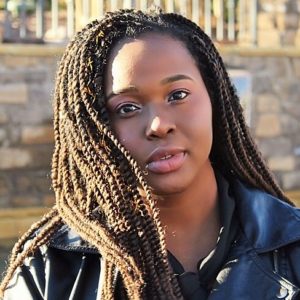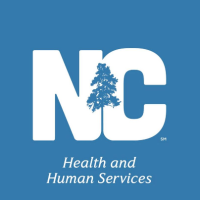
Earlier this week, we sat down with Durham-based actor Lauren Foster-Lee to learn about her experiences with racism/microaggressions in and out of the workplace. Her words were powerful and impactful – take a few minutes to read and let her words sink in.
How long have you worked with Theater Delta?
My first project was in March 2019!
What roles have you played with us?
I tend to play the Danielle/Nicole [mentee] role in the different variations of our Proaction/Cultivation scene. These scenes address implicit bias within grad student mentee-faculty mentor relationships and diversity issues in graduate school.
What kinds of things from your work with Theater Delta come to play out in your real life?
If I am looking at Proaction – Danielle struggles with advocating for herself as well as perfectionism. These are very realistic struggles in my professional life as well. While playing the character, I am frequently asked questions such as: Is Danielle the first black person to pursue this PhD? How many black people are in your cohort? Are you the only one? I’m able to give realistic responses through the lens of a black woman. I am always the youngest person in the room AND the only black person in the room. I have had a leadership role at my workplace since I was 25, and am always cognizant of the need to assert myself – but not too much.
Nicole’s character in careless cultivation deals with being the only black person in a cohort, and the microaggressions that come along with it. I have frequently experienced microaggressions throughout my career.
Do you have any examples of these microaggressions you’ve experienced in the workplace?
Oh, girl, yeah – I was placed into a leadership position within Human Resources pretty soon after I started my career, and many times I’ve been undermined by others because they didn’t think I knew what I was talking about due to my race, gender or age.
A few years back, it was one of my responsibilities as a Benefits Admin to train a woman who was about twice my age. Out of nowhere during our session, she said “I feel like you’re being aggressive toward me” and called in my manager. I was caught off guard, for I’d held an even tone the entire training session, and was never upset or emotional, but I was ready to acknowledge anything I may have done to upset her/impede her job. My manager and I listened to her go off for over 20 minutes and it became clear that every issue she had with me was 100% personal due to my race. My manager called it out for what it was, but was not a good advocate for me – being unwilling to ask for help for me – and I felt no resolution after our discussion. I went to HR and my representative told me there was nothing they could do. Document everything, and even if it was clearly a personal issue, unless something was said that was blatantly racist or sexist in nature, no one is going to be fired.
More recently, a week after George Floyd’s murder, I sat down for my monthly coaching session with several managers over various HR issues. This particular meeting was with a woman who always throws microaggressions my way. I was friendly, just not as chipper as usual, and she asked if I wanted to talk about the previous week’s events. I politely declined, and she pushed in harder, expressing frustration that her “black employees just wouldn’t talk to her about it!” I took a deep breath and explained to her – You can not make black people talk to you about this – give them the time that they need, whether that’s taking a mental health day or stay a bit more reserved for a bit. If that is not the relationship that your employees have with you, you cannot force it – if they felt safe with you, they would bring it up. If someone is ready to talk, they will talk – do not make them.
How have you coped with these workplace microaggressions?
In the beginning it took me forever to be okay after an incident – I would call my mom and cry to her, I can’t even begin to describe the pain. She helped coach me in having thick skin, that giving direction is different than being mean or rude – this is just a job and we do what we have to do to communicate effectively.
I’ve had a great older, black woman that I gravitated toward several years ago who almost acts as an unofficial mentor. We are able to share experiences and it is helpful to talk with someone who gets me, but has had a little more experience pushing through it.
So many people have worked through the mentality of “this is just the way things are, you just have to deal with it.” It was around two years ago when I put my foot down. No! These things are not right! Our white male counterparts would not deal with it, and we don’t have to either. So I started to speak up, reach out to my new manager when something happens, and he backs me. Even HR representatives need HR representatives.
In what ways have you been affected by racism in your personal life?
It’s funny – growing up in the ‘90s – I knew racism still existed, but was taught it could be combated by the education and pedigree of the black community. If we worked hard and helped each other, we would be better. I lived in Baltimore county, and then moved to a suburb of Raleigh in 2004. My corner of the world seemed safe. In 2007, my little brother (then 14) was wrongfully accused of breaking into our OWN house when he stopped by to check the mail. I remember almost not believing him when he shared about the officers’ angry demands for proof, because until this incident, I didn’t think this implicit bias touched my neighborhood. His story was a pivot point for our family’s mindset – we all began to see that the status, wealth, or education of a black person didn’t matter and more importantly, it shouldn’t.
A few years later, I was put into a dangerous situation in which I called the police for my own protection. Upon coming to my house and seeing that I was a young, black woman, I watched these officers come up with a reason as to why I should be arrested. It was like an outer-body experience, watching them make false accusations like “you flailed your arms” which turned into an actual charge against me. These charges were eventually dropped, but it was one of the craziest experiences in my life and, unfortunately, solidified my fear of law enforcement. Do I think every police officer is racist? Of course not, but because of this situation, until I know you – I personally cannot trust you.
How are you working for social justice in today’s environment?
Here are links to some of the organizations I support:
https://durhambeyondpolicing.org/
https://www.northstardurham.com/artistrelief
Tonight, my improv group, Improv Noir is partnering with four other organizations for a Black Impact Fundraiser to raise money for Black Lives Matter and the George Floyd Memorial Fund. Here’s the link!
https://facebook.com/events/s/black-impact-fundraiser/2315662572062691/?ti=icl
Do you have any last words to share about racism in America?
After everything that’s happened with the upheaval in the country right now, every company is sending out blurbs about their fight against racism – what I want to know is, what is their lower level, on the ground action plan? Because that’s the way things will actually change.
Also, we know when we are the token black person. When you’ve called me in as the “expert” because it looks good on your end to be speaking with someone who is black. My friends and I are always asking the question: “Are you being tokened or is this genuine?” People know when they’re being tokened.
Delve in and unroot the implicit bias in your own mind – that’s been drilled into all of our minds through television and movies for decades.

















